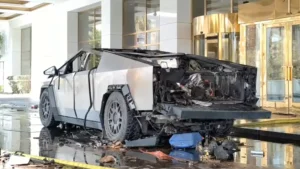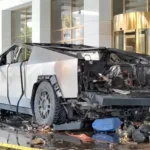Former President Donald Trump recently announced his intentions regarding Haitian migrants in the United States, vowing to remove them if he secures victory in the upcoming presidential election. During a fundraiser in Texas on October 2, Trump reiterated a conspiracy theory suggesting that the growing Haitian population in Springfield, Ohio, was involved in bizarre and unfounded behavior, including accusations of pet consumption.
Trump made headlines by stating, “It has nothing to do with Haiti or anything else. You have to remove the people, and you have to bring them back to their own country.” He went on to describe Springfield as “such a beautiful place” that had been “overrun” and insisted that he would revoke the temporary protected status granted to Haitian immigrants.
The comments have reignited controversy, particularly after Trump amplified conspiracy theories about Haitians in Springfield during a presidential debate against Vice President Kamala Harris on September 10. On that occasion, Trump echoed a statement made by his running mate, Ohio Senator J.D. Vance, who had claimed on social media that Haitian residents were “eating the dogs” and “eating the cats” of local residents. This assertion was quickly fact-checked and labeled as false.
Springfield, a city that has seen an influx of Haitian immigrants seeking refuge from rampant gang violence in Haiti, has been impacted by the increased population. While the newcomers have strained local services, they have also filled critical job vacancies in a city that has struggled economically in recent years. All Haitian immigrants entering the United States have undergone rigorous vetting processes and have been granted temporary protected status due to the dire conditions in their home country.
In the wake of Trump’s inflammatory comments, the local community has faced backlash, including bomb threats directed at Springfield. In response, Ohio’s Republican Governor Mike DeWine and Springfield’s Republican Mayor Rob Rue have stepped up to defend the Haitian residents. “Their comments are just hurtful, and people listen and they hear that he’s kicking everybody out, anybody who’s not born here,” DeWine said in an interview with Politico, referring to Trump and Vance.
DeWine emphasized the importance of maintaining a welcoming stance toward immigrants, stating, “We’re a nation of immigrants and we have to continue to have people come into this country who want to work and want to contribute. That’s how we have vitality.” He has also shown support for the Haitian community by attending Creole services and assisting in translating important documents.
Mayor Rob Rue echoed DeWine’s sentiments, describing the atmosphere in Springfield as “hurting” due to the negative attention and threats stemming from the rhetoric of Trump and Vance. “We want to move forward together, and it just makes it more difficult to do that when we have violent actions and threats,” Rue told The New York Times.
ADVERTISEMENT
The political fallout from Trump’s comments has resonated throughout the community, particularly in the wake of tragic events. The day before the debate, Vance posted on social media about the death of 11-year-old Aiden Clark, who died when a minivan driven by a Haitian man collided with a school bus. Aiden’s father, Nathan Clark, criticized Vance for using his son’s death to further a political agenda, urging, “This tragedy is felt all over this community, the state, and even the nation, but don’t spin this towards hate.”
In light of these events, the community is left grappling with a mix of fear and frustration. Many Haitian residents and their advocates have expressed concern about the rising tide of hate speech and misinformation. One Haitian immigration lawyer noted that clients are feeling panicked amid this new wave of hostility, stating, “Everyone is disheartened.”
As the political landscape heats up ahead of the November election, the ongoing debate over immigration policy and the treatment of Haitian migrants is likely to remain a focal point. With local leaders striving to foster unity and understanding, the situation in Springfield serves as a microcosm of broader national discussions surrounding immigration, community dynamics, and the impact of political rhetoric on vulnerable populations.









